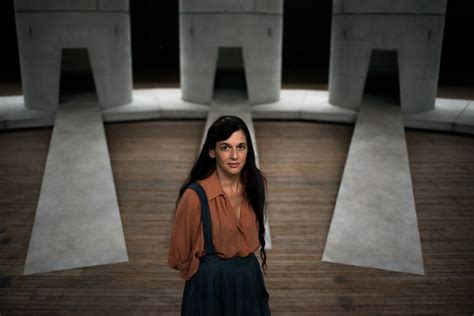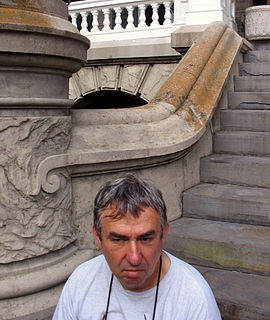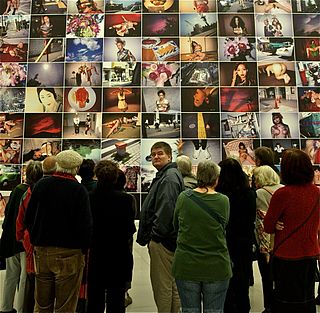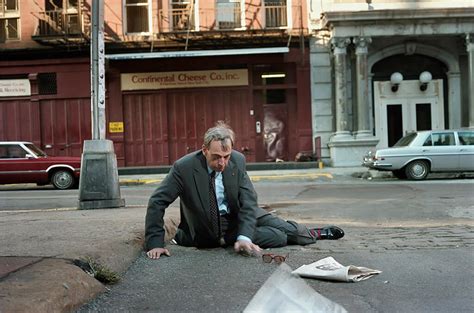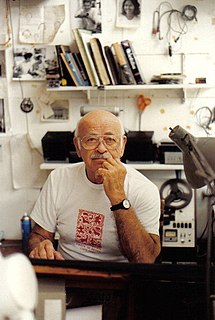A Quote by Taryn Simon
Documentary photography is becoming more illustrative as people become more familiar with photography’s limitations and vulnerabilities. Reality has always been interpreted through layers of manipulation, abstraction, and intervention. But now, it is very much on the surface. I like this honesty about its dishonesty. Every photograph has many truths and none. Photographs are ambiguous, no matter how seemingly scientific they appear to be. They are always subject to an uncontrollable context. This is a tired statement, but worth repeating.
Quote Topics
About
Abstraction
Always
Ambiguous
Appear
Become
Becoming
Becoming More
Been
Context
Dishonesty
Documentary
Documentary Photography
Every
Familiar
Honesty
How
Illustrative
Interpreted
Intervention
Layers
Like
Limitations
Manipulation
Many
Matter
More
Much
None
Now
People
Photograph
Photographs
Photography
Reality
Repeating
Scientific
Seemingly
Statement
Subject
Surface
Through
Tired
Truths
Uncontrollable
Very
Vulnerabilities
Worth
Related Quotes
In the history of photography, one process has always replaced another. The tumultuous realignment that's going on in the photography now is really just a natural evolution. The irony is that none of the processes that have been replaced have disappeared. More people than ever are practicing every approach to shooting and printing.
Traditionally, photography has dealt with recording the world as it is found. Before photography appeared the fine artists of the time, the painters and sculptors, concerned themselves with rendering reality with as much likeness as their skill enabled. Photography, however, made artistic reality much more available, more quickly and on a much broader scale.
[Photography] has become more and more subtle, more and more modern, and the result is that it is now incapable of photographing a tenement or a rubbish heap without transfiguring it. Not to mention a river dam or electric cable factory: in front of these, photography can now only say, How beautiful!
Photography has always been capable of manipulation. Even more subtle and more invidious is the fact that any time you put a frame to the world, it's an interpretation. I could get my camera and point it at two people and not point it at the homeless third person to the right of the frame, or not include the murder that's going on to the left of the frame. You take 35 degrees out of 360 degrees and call it a photo. There's an infinite number of ways you can do this: photographs have always been authored.
One of the magical things about photography is the transformation that takes place when you photograph something. Something that inherently has very little going for it in terms of the interest you take in it, can become infinitely more interesting when rendered as a photograph. It's no longer a building. It's a photograph.
Photographers tend not to photograph what they can’t see, which is the very reason one should try to attempt it. Otherwise we’re going to go on forever just photographing more faces and more rooms and more places. Photography has to transcend description. It has to go beyond description to bring insight into the subject, or reveal the subject, not as it looks, but how does it feel?
I don't know that there were any rules for documentary photography. As a matter of fact, I don't think the term was even very precise. So as far as I'm concerned, the kind of photography I did in the FSA was the kind of photography I still do today, because it is based on passionate concern for the human condition. That is the basis of all the work that I do.
I chose makeup over photography because there was something very sensual about makeup that I loved. But photography was always in the back of my mind. That was always something that I was very connected with: looking at magazines, enjoying photography, and then taking pictures myself when I was a kid.
Photography has almost no reality; it is almost a hundred per cent picture. And painting always has reality: you can touch the paint; it has presence; but it always yields a picture - no matter whether good or bad. That's all the theory. It's no good. I once took some small photographs and then smeared them with paint. That partly resolved the problem, and it's really good - better than anything I could ever say on the subject.
